Foreign
Pope Francis Pulls Out Of Friday’s Way Of The Cross Event At Last Minute

Foreign
Trump administration seeks legislative backing to terminate vaccine funding

The President Donald Trump administration plans to terminate the United States’ financial support for the Global Alliance for Vaccine and Immunisation, the organization that has helped purchase critical vaccines for children in developing countries.
Some other programs terminated is funding for the United Nations Food and Agriculture Organization, which conducts surveillance for diseases that can be transmitted from animals to humans, including bird flu, in 49 countries. Some major programs to track and fight malaria, one of the world’s top killers of children, have also been ended.
Those decisions are included in a 281-page spreadsheet that the United States Agency for International Development sent to the US Congress, listing the foreign aid projects it plans to continue and to terminate.
The New York Times obtained a copy of the spreadsheet and other documents describing the plans.
For many years, developing countries have relied on GAVI support to combat malaria.
Gavi is estimated to have saved the lives of 19 million children since it was set up 25 years ago. The United States contributes 13 percent of its budget.
The terminated grant to Gavi was worth $2.6 billion through 2030.
By Gavi’s own estimate, the loss of U.S. support may mean 75 million children do not receive routine vaccinations in the next five years, with more than 1.2 million children dying as a result.
The U.S. has been among the top donors to the organization since its creation, and became the largest during the Covid-19 pandemic.
Gavi was counting on a pledge made last year by President Joseph R. Biden Jr. for its next funding cycle.
New vaccines with the promise to save millions of lives in low-income countries, such as one to protect children from severe malaria and another to protect teenage girls against the virus that causes cervical cancer, have recently become available, and Gavi was expanding the portfolio of support it could give those countries.
The loss of U.S. funds may set back the organization’s ability to continue to provide its basic range of services — such as immunization for measles and polio — to a growing population of children in the poorest countries, let alone expand to include new vaccines.
While European countries have historically provided significant funding, many are now reducing foreign aid spending as they grapple with the change in U.S. policy on Ukraine and the U.S. demand that they increase their defense spending.
Japan, another major Gavi donor, is struggling with a depreciating currency.
GAVI’s chief executive, Dr. Sania Nishtar said that she hoped the Trump administration would reconsider the decision to end its support. “Gavi’s work keeps people everywhere, including Americans, safe. In addition to protecting individual children, vaccination reduces the possibility of large outbreaks. The organization maintains global stockpiles for vaccines against diseases such as Ebola and cholera, deploying them in rapid response efforts for epidemics,” she said.
Gavi’s structure requires countries to pay part of the cost of vaccines, with their share growing as income levels rise; middle-income countries are weaned from support.
The Trump administration, according to the letter has decided to continue 898 U.S. Agency for International Development Awards and to end 5,341.
It says the remaining programs are worth up to $78 billion.
But only $8.3 billion of that is unobligated funds — money still available to disburse, because the amount covers awards that run several years into the future.
The figure shows a massive reduction in the $40 billion that U.S.A.I.D. used to spend annually.
The administration has decided to continue some key grants for medications to treat H.I.V. and tuberculosis, and food aid to countries facing civil wars and natural disasters.
The cover letter details the skeletal remains of U.S.A.I.D. after the cuts, with most of its funding eliminated, and only 869 of more than 6,000 employees still on active duty.
The memo says that 869 U.S.A.I.D. personnel were working as of last Friday, while 3,848 were on administrative leave and 1,602 are in the process of being laid off.
Of 300 probationary employees who were initially fired, 270 have returned to work following a court order prohibiting their dismissal.
A spokesperson for the State Department, which now runs what is left of U.S.A.I.D., confirmed the terminations on the list were accurate and said that “each award terminated was reviewed individually for alignment with agency and administration priorities, and terminations were executed where Secretary Rubio determined the award was inconsistent with the national interest or agency policy priorities.”
Although the administration has repeatedly said publicly that its foreign assistance review process has been concluded, the information in the documents suggests that there is still some fluidity in which programs will survive.
Staff members of one major malaria program that was terminated weeks ago, and which appears on the list of canceled projects sent to Congress, for example, were informed on Monday that it is being restored.
Nevertheless, cuts to malaria response are deep. While awards that fund the bulk purchase of bednets and malaria treatments have been preserved, many of the programs to deliver these and other malaria control efforts in individual countries such as Cameroon and Tanzania — among the most affected in the world — have been terminated.
Some organizations with awards that have not been officially canceled have received no funds for more than two months, and have folded. Without them, there is no one to take treatments from ports to local clinics, or deliver them to children.
Foreign
Trump lashes out at SA again as AfriForum thanks US president
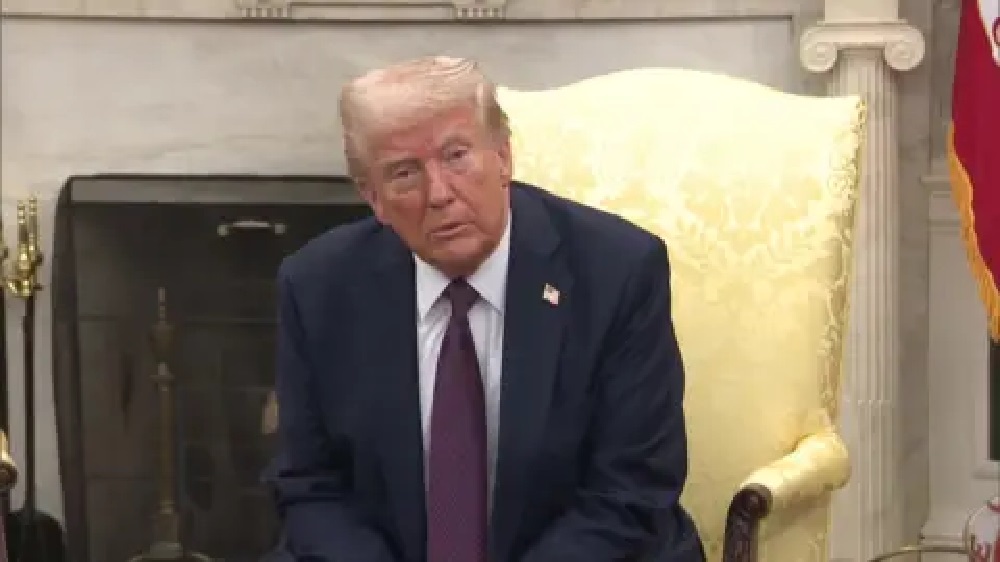
US President Donald Trump has lashed out again at South Africa, this time about EFF leader Julius Malema’s ‘Kill the Boer’ chant.
This comes after South African-born CEO of Space X and Tesla, Elon Musk, shared a post on his platform X about a “major political party that was actively promoting white genocide” in the country.
“Very few people know that there is a major political party in South Africa that is actively promoting white genocide. The video [of Malema chanting ‘Kill the Boer’] was just [recent]. A whole arena chanting about killing white people.”
Thanking Trump
Trump then took to his Truth Social platform, where he posted a screenshot of Musk’s tweet on the matter.
The US president’s post ignited a spark of enthusiasm from AfriForum CEO Kallie Kriel, who thanked Trump for his support.
“Thank you, President Donald Trump, for taking note of the irresponsible calls for violence against Afrikaners/whites—through hate chants such as “Kill the Boer, kill the farmer”—in South Africa. The tragic irony is that the latest incident occurred on March 21, which is officially known as “Human Rights Day” in South Africa.
“What makes this even worse is that this renewed call for violence against Afrikaners was not condemned by President Ramaphosa, ANC leaders, or the South African Government. Their silence regarding this gross human rights violation is deafening,” Kriel posted on X in response to Trump’s post.
‘No genocide in SA’
Last month, Patriotic Alliance (PA) leader Gayton McKenzie said he and Kriel agreed that there is no white genocide in South Africa.
“So you are saying there is no white genocide in South Africa?” McKenzie asked.
“No, we’ve never said that, but there is a serious problem,” Kriel replied.
However, McKenzie pushed Kriel for clarity.
“Of course, there is a problem; people being killed on their farms is a problem, but you’re saying there’s no white genocide?” McKenzie asked Kriel again.
“Genocide is what we saw in Rwanda,” Kriel said.
‘Kill the Boer’
In 2024, The Supreme Court of Appeal (SCA) dismissed, with costs, AfriForum’s appeal against the court ruling that the EFF singing the “Kill the Boer” song was not hate speech.
The SCA ruling emanated from a judgment by the Equality Court in Johannesburg in August 2020, where Judge Edwin Molahlehi ordered that the “Kill the Boer” song does not constitute hate speech after AfriForum’s witnesses and its deputy CEO Ernst Roets failed to link the song to an allegation that it incited a genocide of white farmers.
AfriForum also pointed to a single occasion when former EFF MP Mbuyiseni Ndlozi chanted a similar song, including the words: ‘Shisa lamabhunu, EFF ingen’endaweni’ (Shisa lamabhunu). The literal English translation of that chant was: ‘Burn these Boers, EFF enters in the space or place’.
The court held that what Malema was doing was no more than exercising his right to freedom of expression.
In 2022, the Pretoria High Court dismissed AfriForum’s hate speech case against the EFF over the party’s use of the struggle song, Dubul’ Ibhunu, which translates to “Shoot the Boer”.
Source: bbc.com
Foreign
US bars ex-president of Argentina from entering the country
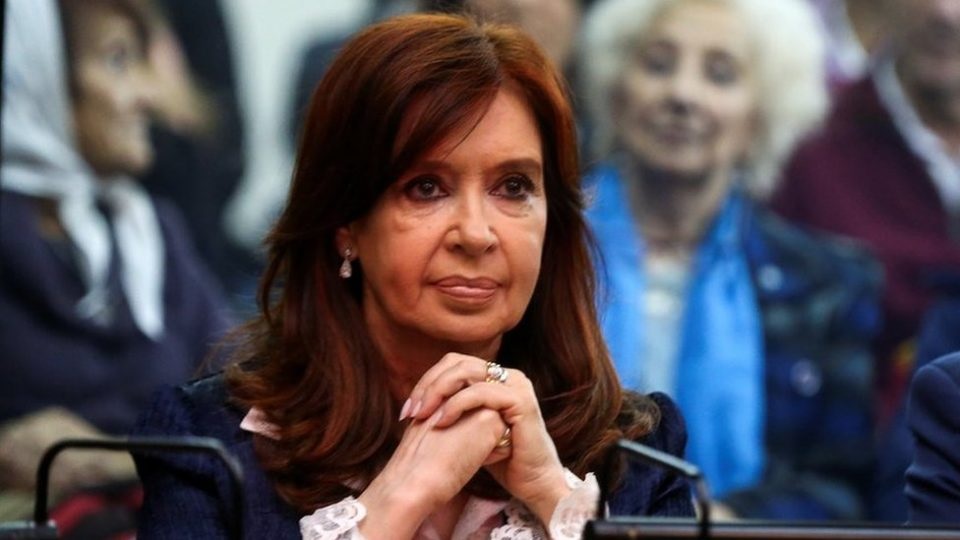
The United States banned former Argentine president Cristina Kirchner and one of her ministers from entering the US on Friday, accusing them of corruption.
US Secretary of State Marco Rubio accused Kirchner and former planning minister Julio Miguel De Vido of receiving millions of dollars in kickbacks from public works contracts.
Kirchner was president of Argentina between 2007 and 2016 and has since been sentenced in her home country to six years in prison for corruption and barred from public office, a ruling she has appealed.
In a statement, Rubio said “CFK”, De Vido and their close relatives had been designated under US law as credibly involved in “significant corruption.”
“This action renders CFK, De Vido, and their immediate family members generally ineligible for entry into the United States,” he said.
Since leaving the presidency and while awaiting the result of her appeal, Kirchner has continued to pursue political activities and seek elected office under the banner of Argentina’s Peronist opposition.
This has made her a high-profile opponent of Argentina’s current leader, President Javier Milei, a right-wing populist and an ally of US President Donald Trump.
AFP
-

 News15 hours ago
News15 hours agoBUSTED! CAC confirms Kogi group demanding Natasha’s recall is FAKE
-

 News9 hours ago
News9 hours agoWike’s mega rally: Your alarm is baseless , aide tells Gov Diri
-
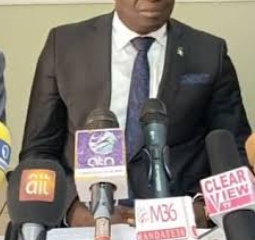
 Opinion8 hours ago
Opinion8 hours agoPROFESSOR HUMPHREY NWOSU: THE UNSUNG HERO OF TRUE NIGERIAN DEMOCRACY
-

 Metro15 hours ago
Metro15 hours agoTeacher buried alive over alleged affair with suspect wife
-
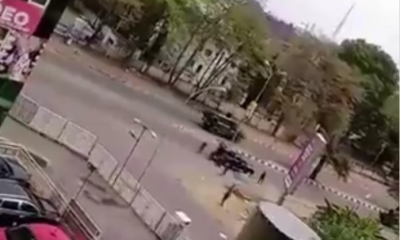
 News4 hours ago
News4 hours agoBREAKING: Gunfire Erupt as Soldiers, Shi’ite Group Clash in Abuja [VIDEO]
-
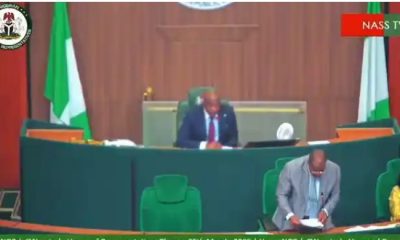
 News23 hours ago
News23 hours agoJust in: Bill to Create Prime Minister’s Office Passes Second Reading
-

 Economy11 hours ago
Economy11 hours agoSEE Dollar to Naira Exchange Rate Today, Friday, March 28, 2025
-
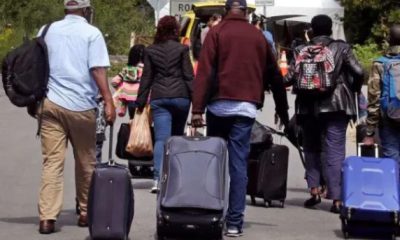
 News9 hours ago
News9 hours agoJapa: 7 Important Travel Documents Every Nigerian Needs






